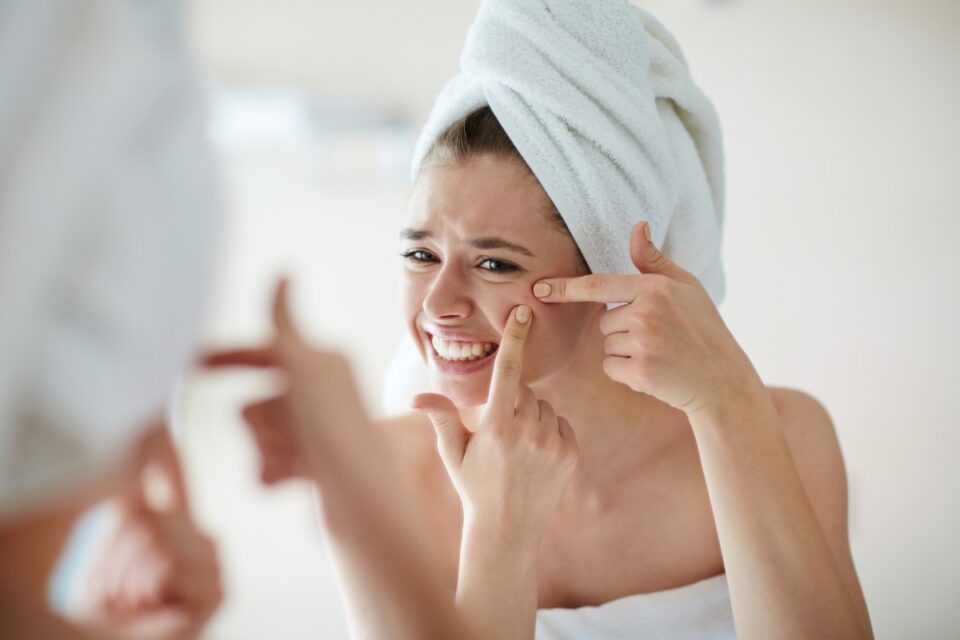Cysts may appear anywhere on the body. It can be caused by a number of circumstances. A skin cyst is a fluid-filled lump that develops just under the surface of the skin. It’s a common and innocuous condition that goes away on its own. These are soft to somewhat hard nodules beneath the skin that are frequently loaded with dead skin cells and can be found on the trunk (particularly the back), scalp, face, or other parts of the body.
Cysts take a long time to develop. Some are quite tiny, while others have a diameter of a few centimeters. You will not get hurt with the tiny cyst. But if they burst or get infected, they can be rather unpleasant.
A cyst that has been infected will usually become red and become warm, and painful. If you do not treat an infected cyst, it can spread infection to the surrounding tissues. Then it will result in cellulitis and, in the worst-case scenario, infection of the bloodstream.
Table of Contents
What you should do if you have a skin cyst?
Cysts are typically not harmful. You do not need to be concerned. Small cysts that do not cause any difficulties can be ignored.
Holding a warm flannel to the area helps promote healing and minimize inflammation.
It is not advisable to rupture the cyst. If it’s contaminated, you risk spreading the illness, and if the sac is left beneath the skin, it might grow back.
Skin Cyst Types
Epidermoid cysts are one of the most prevalent types of skin cysts. It is most usually observed on the face, neck, chest, shoulders, or the skin surrounding the genitals. Epidermoid cysts are tiny lumps that form beneath the skin. They have no further symptoms and are never malignant. They mostly afflict individuals in their twenties and thirties. If you feel uncomfortable with the cyst, consult with a doctor.
Pilar cysts are a kind of trichilemmal cyst. It commonly appears on the scalp and develops around the hair follicles. Keratin is found in the epithelial lining of hair follicles. A pilar cyst occurs when too much keratin accumulates in the epithelial lining. The majority of growing trichilemmal cysts may be treated surgically. Pilar cysts are cysts that grow around hair follicles. They then squeeze or prick out the flake. They’re often found on the scalp.
Treating Skin Cysts
The treatment of cysts will be determined by several factors, such as the type of cyst, its location, size, the existence of symptoms, the present condition (swollen or infected), and other characteristics.
Most epidermoid cysts do no harm to the body and should be left alone because they are typically benign lesions. Treatment is proven and advised if a cyst becomes rapidly larger, painful, bloated, inflamed, or infected. You then consult with your physician.
A warm, damp towel over the affected region may help it drain and heal, but it will most likely return. (If it drains, the thing that comes out will most likely stink.) Cysts will sometimes go away on their own.
Your doctor can give you some suggestions. You need to concentrate with his medication. Options include of skin cyst removal:
- The cyst can be drained. The cyst is sliced, and the filth within is pushed out by the doctor. Cysts may reappear after this.
- Cysts can sometimes be tender, swollen, or growing. Be careful about size. In this case, the drug should be taken by injection to reduce the swelling.
- Complete cyst wall removal can be done with minor surgery. In this case, the cysts cannot return to the previous phase.
- Remove with laser treatment is another option.
Milia is another form of a cyst. It can be eliminated using a topical treatment. This is applied to the skin in the form of a cream. However, de-roofing is the most popular method of removing milia. Dermatologists remove the little flap of skin that is trapping the keratin flake inside the pore with a sterile needle. The flake is then squeezed or pricked out.
Summary
To assist calm it and expedite healing, place a bathwater-warm washcloth on it for 20 to 30 minutes three to four times a day.
If it begins to drain, wrap it in a bandage and arrange an appointment with your doctor.


